- Home
- Sarah Woodbury
The Favored Son
The Favored Son Read online
The Favored Son
The Gareth & Gwen Medieval Mysteries, Volume 10
Sarah Woodbury
Published by The Morgan-Stanwood Publishing Group, 2018.
This is a work of fiction. Similarities to real people, places, or events are entirely coincidental.
THE FAVORED SON
First edition. January 21, 2018.
Copyright © 2018 Sarah Woodbury.
ISBN: 978-1386467960
Written by Sarah Woodbury.
Table of Contents
Prologue
Chapter One
Chapter Two
Chapter Three
Chapter Four
Chapter Five
Chapter Six
Chapter Seven
Chapter Eight
Chapter Nine
Chapter Ten
Chapter Eleven
Chapter Twelve
Chapter Thirteen
Chapter Fourteen
Chapter Fifteen
Chapter Sixteen
Chapter Seventeen
Chapter Eighteen
Chapter Nineteen
Chapter Twenty
Chapter Twenty-one
Chapter Twenty-two
Chapter Twenty-three
Chapter Twenty-four
Chapter Twenty-five
Chapter Twenty-six
Chapter Twenty-seven
Chapter Twenty-eight
Chapter Twenty-nine
Historical Background
Sample: Shades of Time
A Gareth & Gwen Medieval Mystery
The Favored Son
by
Sarah Woodbury
Copyright © 2018 by Sarah Woodbury
All rights reserved. This book or any portion thereof
may not be reproduced or used in any manner whatsoever
without the express written permission of the publisher
except for the use of brief quotations in a book review.
November 1147. Gareth and Gwen have again been called to a castle belonging to Robert, Earl of Gloucester, this time by Prince Henry, who insists his uncle was murdered. Allying with Normans doesn’t come easily to Gareth and Gwen, but initial doubts are swept aside as more losses come to light. Because Robert's death has upended the balance of power in England, friends and foes alike have a vested interest in keeping the truth from coming out, and it is up to Gareth and Gwen to stop the killer before he claims another victim—and maybe a country.
The Favored Son is the tenth Gareth & Gwen Medieval Mystery.
Complete Series reading order: The Good Knight, The Uninvited Guest, The Fourth Horseman, The Fallen Princess, The Unlikely Spy, The Lost Brother, The Renegade Merchant, The Unexpected Ally, The Worthy Soldier, The Favored Son. Also The Bard’s Daughter (prequel novella).
www.sarahwoodbury.com
Cast of Characters
Gwen – Gareth’s wife, spy for Hywel
Gareth – Gwen’s husband, captain of Hywel’s guard
Llelo – Gareth and Gwen’s foster son
Dai – Gareth and Gwen’s foster son
Tangwen – Gareth and Gwen’s daughter
Taran – Gareth and Gwen’s son
Evan – Gareth’s friend, Dragon member
Angharad – Evan’s wife
Gruffydd – Rhun’s former captain, Dragon member
Cadoc – Assassin, Dragon member
Steffan – Dragon member
Iago – Dragon member
Aron – Dragon member
Robert – Earl of Gloucester (deceased)
Henry Plantagenet – son of Empress Maud and Geoffrey of Anjou
Hamelin – Henry’s half-brother
William FitzRobert – Earl of Gloucester
Roger FitzRobert – William’s brother
Robert Fitzharding – Local magnate of Bristol
Cadwaladr ap Gruffydd – King Owain’s brother
Stephen – King of England
William of Ypres – Stephen’s spymaster
To my Taran
Prologue
Stephen de Blois came to London,
and the people received him
and hallowed him to king on midwinter day.
But in this king's time was all dissension, and evil, and rapine;
for against him rose soon the rich men who were traitors.
Then was England very much divided.
Some held with the king and some with the empress;
for when the king was in prison,
the earls and the rich men supposed that he would never more come out,
and they settled with the empress,
and when the king was out,
he heard of this, and took his force,
and beset her in the tower.
By such things, and more than we can say,
we suffered nineteen winters for our sins.
To till the ground was to plough the sea:
the earth bore no corn,
for the land was all laid waste by such deeds;
they said openly that Christ and his saints slept ...
–The Anglo-Saxon Chronicle
Westminster Palace
November 1147
King Stephen
The rap at the door was unwelcome, and for a moment Stephen considered not answering. But his attendants knew he was in his chamber—and alone—and they were likely to be persistent.
So rather than succumbing to his petty and uncharacteristic desire to hide, he said, “Come!”
The door opened, a bit more tentatively than usual, Stephen was pleased to see. His spymaster, William of Ypres, stood on the threshold.
At the sight of Stephen slouched in his chair by the fire, William put his heels together and bowed. “My king. We have received a message from Gloucester.”
Stephen straightened, his heart suddenly pounding with a combination of dread and determination. “Just say it.”
“Your noble cousin, Robert, has died.”
Stephen let out wavering breath. “So it is over.”
“Yes, my lord.”
“He was more than a cousin to me. He was my friend, once.”
“I know, my lord.”
Stephen couldn’t sit still any longer and stood to pace in front of the hearth. William knew better than to interrupt, though Stephen could sense his impatience growing. “You have something to say?”
“Maud hasn’t moved from Devizes in months, and rumor has it she plans to return to Normandy soon. This could be the moment for which we’ve been waiting, my king. The empress is without a general, and who is she going to choose? Ranulf?” William scoffed. “Henry? You defeated him easily in the spring.”
Stephen paused amidst his pacing. “You want to attack now? This late in the year?”
William stood his ground. “The weather hasn’t turned yet. Our enemy is weak and leaderless.”
Stephen chewed on his lower lip. “It would be unseemly.”
William allowed himself a single tsk of disgust before swallowing down the rest of his arguments, though he did muster the temerity to say, “At least consider it, my king.”
“What of our traitor in Gloucester?”
“He is prepared.” William took a step forward, an indication of his surprise and anticipation. “You—you are considering my proposal?”
“I am.”
“It is ... somewhat underhanded,” William said hesitantly.
Stephen returned to his seat. As he studied William—and his options—his fingers beat a tattoo on the arm of his chair. “You are wondering why I won’t take advantage of Robert’s death to attack Lincoln or Devizes openly, but I am willing to seal Maud’s fate by taking Bristol by deception?” With its high
ground, moat, massive square keep, two concentric curtain walls, and three wards, Bristol castle was eminently defensible.
“Yes, my lord.”
Stephen’s eyes remained focused on William’s face. He wanted his spymaster to understand that he’d never been more serious. “I will consider it because I want this conflict to end, and I must be the victor. Victory in this instance means not sacrificing more men at the foot of a castle I have been heretofore unable to take. But taking it from the inside because of my enemy’s own weakness? That I can do.”
Stephen could tell that William still didn’t understand the difference and thought his king was splitting hairs. Perhaps he was. He knew in himself, however, that he hadn’t moved against Bristol while Robert was alive because of their shared history and respect. He would and had taken his cousin in battle. He would have killed him on that battlefield had it become necessary. But he would not use subterfuge against him. Robert had been the very essence of honor, and in moments of self-honesty, Stephen could admit he’d admired him his whole life and as a youth had aspired to be like him.
But with Robert dead, William was right that a new strategy was required. Open warfare would serve only to tear England apart even more, but if he could take Bristol without losing an army, he would do it.
And end the war. At last.
William cleared his throat. “Henry is at Bristol.”
Stephen’s eyes lit. “Even better. I take him, and Maud is truly done.”
“I should prepare?”
“Indeed.”
William turned thoughtful. “We should send a messenger to Henry at Bristol with your condolences for Earl Robert’s death.”
“Of course.” Stephen paused. “But—”
“But not a man you need at your side for the coming endeavor.” William tapped his lips with one finger, and his expression became almost predatory.
Stephen knew that look. It sent a shiver down his spine, and he was more glad than he could say that William was on his side and not Maud’s.
“Never fear, my king. I know just who to send.”
Chapter One
Bristol Castle
November 1147
Gwen
“I’m so glad you’re here. I was afraid you weren’t going to come—” Henry Plantagenet, son of Empress Maud, broke off his greeting as he caught sight of baby Taran in Gwen’s arms.
Gwen and Gareth bowed. By the time they’d straightened, Henry had come around the table that was serving as a repository for stacks of paper and halted in front of them.
Gwen smiled ruefully at Henry’s evident surprise and said in French, the language he’d been speaking, “You said you wanted both of us, and both of us have come.” She turned sideways to show him the baby, who was asleep in his sling in soft wool blankets. “Plus one.”
Henry bent forward to look into Taran’s face. “I never meant for you to put yourself or your child at risk!” With utter gentleness, he reached out a finger to stroke the baby’s cheek and lowered his voice so his talking wouldn’t disturb the child. “I would not have been so demanding had I known of his birth.”
And then he amended, with a maturity not present the last time they’d seen him, “No, that’s a lie. I would have wanted you to come regardless and resented that you could not.”
“As soon as we received your message, we both wanted to heed your summons,” Gareth said, “but Gwen and the baby would not have traveled such a distance if staying at Aberystwyth wouldn’t have been worse. Croup.”
The disease engendered such fear that Henry recoiled slightly. Gwen put out a hand, wanting to reassure him. “It has been ten days since we left Aberystwyth and none of our party has fallen ill in that time. You have nothing to fear from us.”
Croup wasn’t as terrible a sickness as plague, but it invariably left dead children and broken families in its wake. When Gareth was five years old, his own parents had died of croup or something similar. He’d been too young at the time to know the difference between one sickness and the next. The disease was characterized by a swollen neck and a sore throat that eventually cut off a child’s ability to breathe. It was an ugly and painful way to die—and horrific for a parent to have to watch.
Prince Henry regarded them. “I see now the reason for the delay in your arrival—and appreciate it.”
What remained to be seen was whether or not anyone else did. Things hadn’t started off well. Their entry into the castle had been further delayed by the need for the guard to write down every one of their names. Because they were Welsh, the construction and spelling had been unfamiliar to him. Just before Gareth himself had offered to write the list, the understeward had hastily finished it and sent them on their way, admittedly with his apologies.
“I am pleased not to take on an unnecessary measure of guilt. The weight I bear is heavy enough.” Henry glanced over his shoulder as he walked back to his seat on the far side of the table. “Where are the rest of your men? Surely you didn’t bring only one retainer with you?”
He was referring to their eldest son, Llelo, who’d put his back to the now-closed door. Gwen had never been to this particular castle before, but she recognized the room as a private office or receiving room. It was fifteen feet on a side, appointed with a long table, several cushioned chairs, and a window. Inside the confines of the castle, Gwen found herself all turned around, so she wasn’t sure which direction the window faced, but it was letting in enough natural light that a few candles and the fire were sufficient to light the space. She could believe the room had once been Earl Robert’s, but with his death, it had been given over to the next-highest-ranking magnate—not his son and heir, William, but Prince Henry.
Since it was only the few of them, Gwen didn’t stand on ceremony and went straight to the hearth to warm her hands and Taran in his blankets. She didn’t have Prince Hywel’s condition which caused his fingers to turn white when they grew too cold, but this morning they’d woken to chillier air than they’d experienced in the whole of their journey. She’d been glad to reach the castle and find herself indoors. The hall had been warmer than outside, but it hadn’t been as warm as this room.
Gareth followed Gwen to the fire, though he stood a pace closer to Henry with his back to the flames and his hands clasped behind him.
“We have a few more men with us, my lord, but we didn’t fear for our lives in Bristol, knowing that it was within your sphere of influence, and we didn’t want to impose on you with an army. We thought our son sufficient protection to enter your hall.” Gareth gestured behind him. “This is Llelo, our eldest and my apprentice, if such a thing can be conceived, in investigating murder.”
Llelo put a hand to his heart and bent his head. “I was also at Newcastle-under-Lyme three years ago, my lord, though I imagine you don’t remember me.”
Henry’s eyes swept over Llelo in a quick assessment. He saw a tall young man, a year older than Henry himself, with dark hair and blue eyes that looked back at the prince with equal curiosity. “I’m sorry, but I do not. I won’t make that mistake again.” Then he paused. “How many soldiers did you say you brought?”
“I’m sorry if I wasn’t clear,” Gareth said. “We have a guard of six.”
Up until now—except for the rueful laugh—Henry had appeared quite grave, but now his eyes lit. “Don’t tell me you brought the Dragons with you!”
Gareth’s eyes twinkled. “We did.” He had felt some apprehension at taking Hywel’s best warriors away with him, but left behind at Aberystwyth were Hywel’s foster father, Cadoc, and Cadoc’s sons, along with the entirety of the prince’s teulu. They had to be content they were leaving their lord in safe hands—or as safe as could be arranged.
Gwen laughed herself to see Henry’s enthusiasm. “How could you possibly know of them?”
“Who hasn’t heard of the Dragons?” Henry sounded as excited as a boy whose master had just replaced his wooden sword with a real one. “They took down the Flemings’ castle sing
le-handed! What a blow they struck for my mother!”
The six men he was referring to, dubbed the Dragons by Prince Hywel, were each worth two or more average men. The decision to send only them with Gareth and Gwen had been deliberated upon at length, but in the end Hywel had decided not to send any more for the reasons to which they’d just alluded. In addition, though it hadn’t occurred to Gwen until she’d seen Henry’s face, the Dragons—of all the members of Hywel’s court—were the most likely to be well received by English people. Their reputation, like Gareth’s and Gwen’s, had preceded them.
Gwen didn’t mention—because to Henry it would have been immaterial—the rest of their retinue, which included their daughter, Tangwen; Evan’s wife, Angharad; Gareth and Gwen’s other adopted son, thirteen-year-old Dai; and four household servants: Tangwen’s nanny, her daughter, and a husband and wife couple. These latter two were recent additions and a concession of a sort on Gwen’s part. But with the new baby, basic daily household tasks were often beyond her, and Gareth was of the opinion that if he could afford to employ someone to help with chores, then he was morally obligated to do so.
Gareth had been smiling at Henry, but at the mention of the battle for Wiston Castle he sobered. “I know; I was there.”
He shot Gwen a meaningful look. The blow they’d struck at Wiston hadn’t been in the slightest bit for Empress Maud—but for Wales, in the hopes of ridding their lands of the hated Flemings once and for all. That they’d attacked and taken the castle as allies of Gilbert de Clare, Earl of Pembroke, who’d recently abandoned King Stephen for Maud, had been of no importance to Prince Hywel. To Welsh eyes, there wasn’t much to choose between these two cousins who were warring for the English throne. Either would both have conquered Wales in a heartbeat if one hadn’t been too busy fighting the another.
Henry didn’t appear to notice the glance, caught up as he was in the glories of battle. “I would have expected nothing less from you! I want to hear all about it, but it will have to wait until our business here is done.”
Only a boy when they’d met him for the first time at Newcastle-under-Lyme (and saved his life), Henry was now fourteen and a man by Welsh reckoning. Though his freckled face was still rounded with youth, since they’d last seen him his hair had darkened to a reddish-blond. He’d grown stockier in build too, an indication of the martial upbringing that was required for the firstborn son of a claimant to the throne of England. Training in war was his birthright.

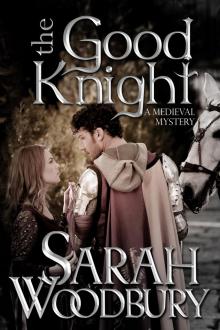 The Good Knight
The Good Knight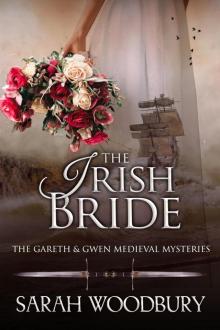 The Irish Bride
The Irish Bride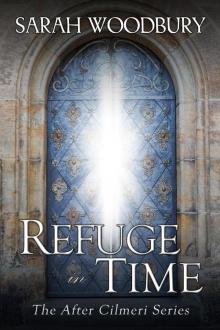 Refuge in Time
Refuge in Time Masters of Time
Masters of Time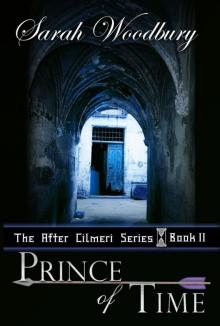 Prince of Time (Book Two in the After Cilmeri series)
Prince of Time (Book Two in the After Cilmeri series)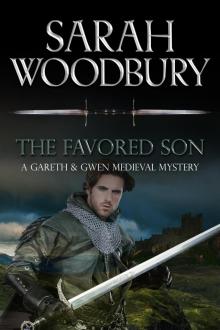 The Favored Son
The Favored Son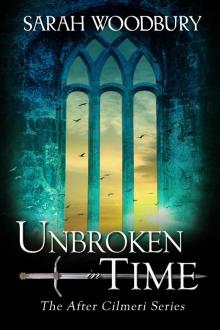 Unbroken in Time
Unbroken in Time![[The Lion of Wales 01.0] Cold My Heart Read online](http://i1.bookreadfree.com/i/03/22/the_lion_of_wales_01_0_cold_my_heart_preview.jpg) [The Lion of Wales 01.0] Cold My Heart
[The Lion of Wales 01.0] Cold My Heart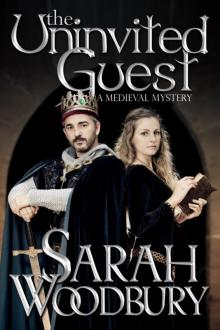 The Uninvited Guest
The Uninvited Guest The Pendragon's Blade (The Last Pendragon Saga Book 2)
The Pendragon's Blade (The Last Pendragon Saga Book 2)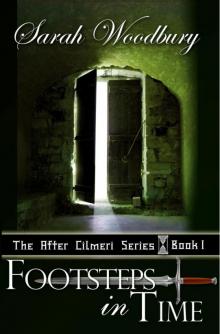 Footsteps in Time
Footsteps in Time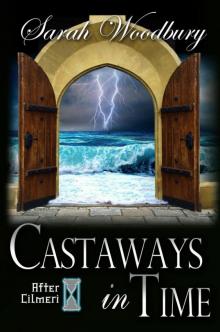 Castaways in Time (The After Cilmeri Series)
Castaways in Time (The After Cilmeri Series) Winds of Time
Winds of Time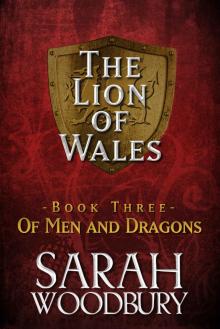 Of Men and Dragons (The Lion of Wales Book 3)
Of Men and Dragons (The Lion of Wales Book 3) Champions of Time
Champions of Time The Pendragon's Challenge (The Last Pendragon Saga Book 7)
The Pendragon's Challenge (The Last Pendragon Saga Book 7) Rise of the Pendragon (The Last Pendragon Saga Book 6)
Rise of the Pendragon (The Last Pendragon Saga Book 6)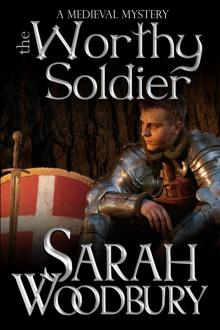 The Worthy Soldier
The Worthy Soldier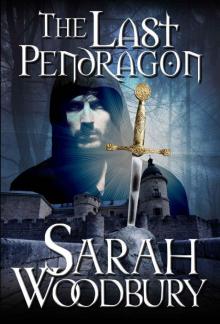 The Last Pendragon (The Last Pendragon Saga Book 1)
The Last Pendragon (The Last Pendragon Saga Book 1)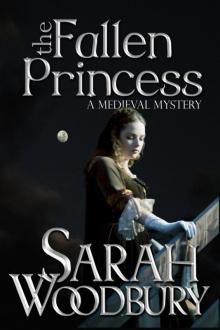 The Fallen Princess
The Fallen Princess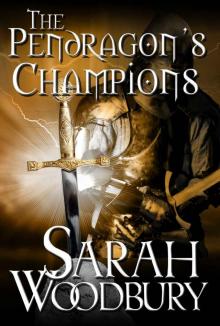 The Pendragon's Champions (The Last Pendragon Saga Book 5)
The Pendragon's Champions (The Last Pendragon Saga Book 5)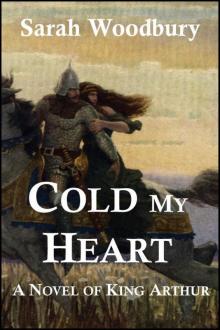 Cold My Heart: A Novel of King Arthur
Cold My Heart: A Novel of King Arthur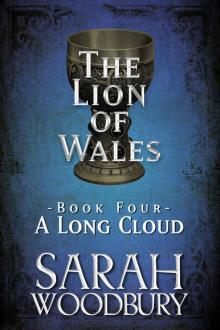 A Long Cloud (The Lion of Wales Book 4)
A Long Cloud (The Lion of Wales Book 4)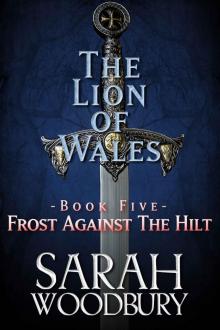 Frost Against the Hilt (The Lion of Wales Book 5)
Frost Against the Hilt (The Lion of Wales Book 5)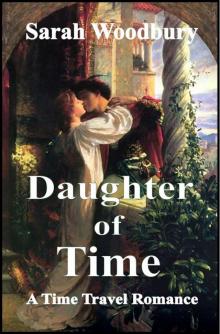 Daughter of Time: A Time Travel Romance
Daughter of Time: A Time Travel Romance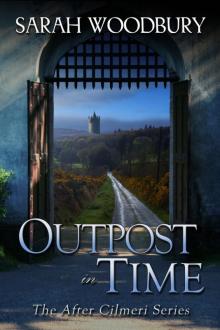 Outpost in Time
Outpost in Time Shades of Time kobo
Shades of Time kobo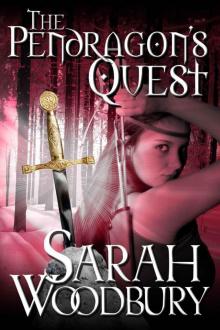 The Pendragon's Quest (The Last Pendragon Saga Book 4)
The Pendragon's Quest (The Last Pendragon Saga Book 4)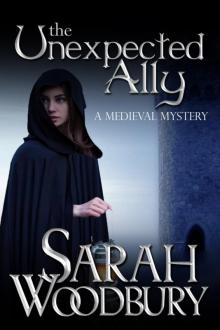 The Unexpected Ally
The Unexpected Ally Crossroads in Time (The After Cilmeri Series)
Crossroads in Time (The After Cilmeri Series)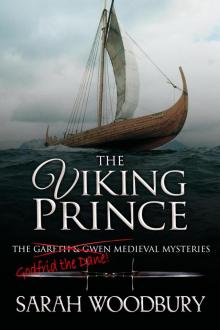 The Viking Prince
The Viking Prince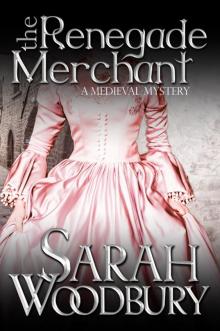 The Renegade Merchant
The Renegade Merchant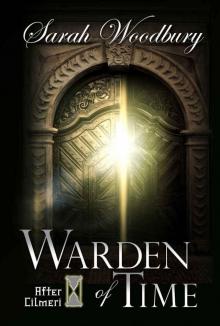 Warden of Time (The After Cilmeri Series Book 8)
Warden of Time (The After Cilmeri Series Book 8)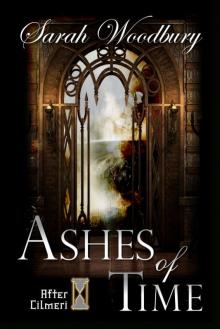 Ashes of Time (The After Cilmeri Series)
Ashes of Time (The After Cilmeri Series) Exiles in Time (The After Cilmeri Series)
Exiles in Time (The After Cilmeri Series)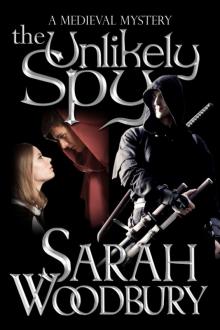 The Unlikely Spy
The Unlikely Spy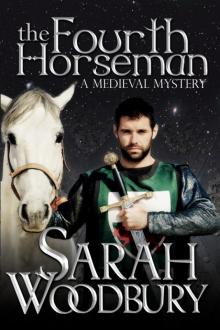 The Fourth Horseman
The Fourth Horseman The Oaken Door (The Lion of Wales Book 2)
The Oaken Door (The Lion of Wales Book 2) Song of the Pendragon (The Last Pendragon Saga Book 3)
Song of the Pendragon (The Last Pendragon Saga Book 3) Champions of Time (The After Cilmeri Series, #13)
Champions of Time (The After Cilmeri Series, #13)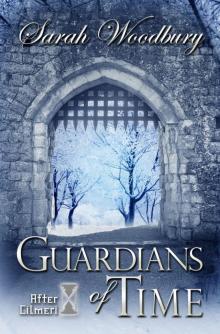 Guardians of Time
Guardians of Time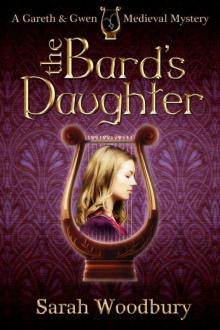 The Bard's Daughter (A Gareth and Gwen Medieval Mystery)
The Bard's Daughter (A Gareth and Gwen Medieval Mystery)